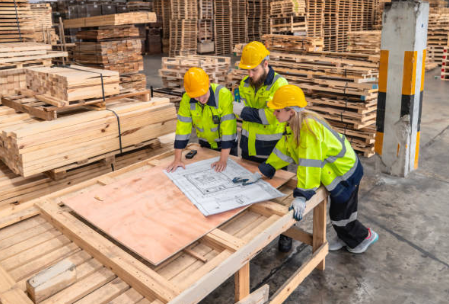Inspection and insurance: two reasons for woodworking businesses to shape up
29.09.23 · News

Commercial insurance broker, McCarron Coates, is warning woodworking businesses to get their health and safety house in order, as the Health and Safety Executive (HSE) continues to inspect businesses within the sector.
With HSE’s ‘Dust Kills’ campaign underway, it is essential woodworking businesses address their dust control procedures. McCarron Coates says this will have another benefit, with insurers increasingly seeking to reward better risk management through insurance pricing.
Inspections of woodworking facilities started in 2023 and are due to continue into 2024. As 78% of the woodworking businesses inspected, to date, have not been compliant, and 402 have received HSE enforcement notices, the sector will be under immense scrutiny.
McCarron Coates says this level of non-compliance highlights issues existing in the sector and a lack of understanding, on the part of woodworking employers, of what the law expects.
Wood dust causes respiratory issues and irreversible diseases such as sino-nasal cancer, asthma and dermatitis. Dust emanates from hardwood, softwood and composite sources, during actions such as sawing, sanding and milling. Once airborne, it is easy to breathe in, particularly if controls are inadequate.
Under the 2002 Control of Substances Hazardous to Health regulations (COSHH), employers have a duty to ensure employees’ exposure to substances that can harm health is either prevented or, where not reasonably practicable to do this, adequately controlled.
In a woodworking business, this means exploring and installing Local Exhaust Ventilation (LEV) systems, ensuring that face-fitted RPE equipment is effective and providing health surveillance of workers exposed to wood dust. The facts speak for themselves, with carpenters and joiners four times more likely to suffer from asthma than other workers.
Should the business also handle the processing of kitchen worktops, controls need to be even tighter, due to the danger of silicosis, caused by airborne silica.
McCarron Coates’ director, Luigi Maggio, says, “In 2023, the HSE found issues with the design and management of LEV systems, poorly fitted face protection – the last line of wood dust defence – and inadequacies with health surveillance. These are areas that woodworking businesses must address, if they are to protect workers’ safety.
“Health surveillance is vital, as it shows the employer’s level of commitment to protecting employees’ health. It should be noted that COSHH expects employers to keep records of such controls for 40 years. That indicates that legal action could be taken at a time well into the future, should an employee believe an employer’s negligence contributed to their health issue. Alarm bells should sound for any employer not being on top of their dust control.”
Health surveillance should see a woodworking business working with an occupational health professional, who monitors employees’ health and feeds back information that can contribute to risk assessments and associated risk control actions. It can assist in moving employees, who are suffering certain issues, to other roles, in which exposure to wood dust is lower. It is also a process that enables employees to raise concerns, so the employer can act.
Luigi Maggio says getting this aspect of the business right also has a direct and positive influence on insurance premiums. As he notes, “We work closely with insurers and present our clients risks to them, on an individual basis. If, as part of our presentation, we can demonstrate that they are doing everything possible to control their workplace risks, and lowering their liability exposures at the same time, it can reduce the premiums charged for their statutory and necessary insurance covers.”
The message for woodworking businesses is loud and clear. Get your house in order before an inspector calls and take legal responsibilities seriously. For help with risk control, contact McCarron Coates on 0113 298 3489.
